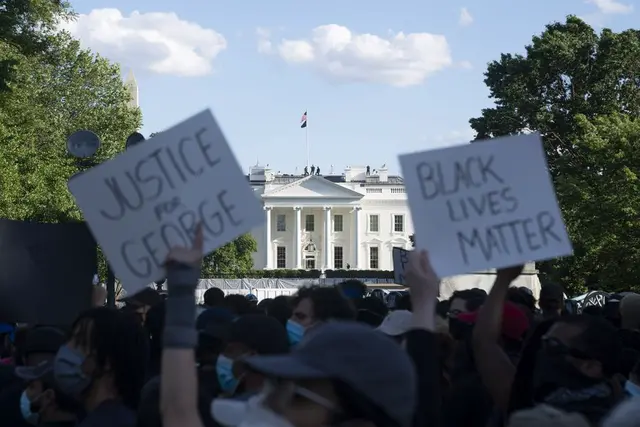Indigenous Australia has remained a blind spot for successive governments and the drive for economic and social equality has come under renewed scrutiny in 2014, with a review into Indigenous jobs and training programs commissioned Prime Minister Tony Abbott just one issue discussed this week as part of a national discussion on indigenous investment governance.
Indigenous Business Australia (IBA) second annual forum in Sydney drew representatives from over 20 Indigenous organizations across Australia to share their ideas and experiences in the pursuit of developing a common set of Indigenous investment principles.
The forum comes as mining magnate and indigenous employment advocate Andrew Forrest voiced concerns that the government-led review into Indigenous jobs and training programs could in fact result in disadvantaged Aboriginal Australians to lose their subsidized housing in remote communities if they take jobs.
"Many people in the government and semi-government have been going out there, spending the public's money and training Aboriginal people for jobs which may or most often not exist, and that's the kind of supply led airy fairy solution which has been successful in wasting billions of dollars and disenfranchising tens of thousands of Indigenous people," Forrest said.
Alan Tudge, the current parliamentary secretary for Indigenous affairs, said that remote Northern Territory communities are at a standstill with only one in five Indigenous young people engaged in work or study.
But rather than wallow in the sometimes overwhelming sense of crisis within remote communities, the IBA is committed to work- shopping initiative for Indigenous organizations to ensure that they are providing a "sustainable economic future" for their communities.
Indigenous Australians have much lower employment rates than other Australians.
According to the Federal Department for health and Welfare, there is a yawning employment gap between Indigenous and other Australians .
In 2008, the employment rate of Indigenous men of working age was 59 percent, compared with 85 percent for all Australian men.
For Indigenous females, the employment rate was 42 percent compared with 69 percent for all Australian women .
Reasons for the lower employment rates include lower levels of education, training and skill levels (human capital), poorer health, living in remote areas with scarce opportunities, higher levels of arrest and interactions with the criminal justice system, discrimination, and lower levels of job retention.
Earlier this year, Forrest floated that young people should not be allowed to leave school unless they have a job to go to, reflecting the tension that exists between facilitating change and imposing cherry-licked policies that can isolate indigenous communities that face social barriers from health and education to prejudice and racism.
This week the Australian Defense Force (ADF) engaged an Indigenous-owned enterprise to deliver a project worth up to 6 million Australian dollars (5.5 million U.S. dollars) supporting Navy's Canberra class amphibious assault ships , a first for a Commonwealth Government construction contract.
Australia's Minister for Defense David Johnston and Parliamentary Secretary to the Prime Minister Alan Tudge this week announced that Pacific Services Group Holdings Pty Ltd has been appointed as the head contractor for the works at HMAS Waterhen in Sydney.
"This is a noteworthy milestone for Defense and the Government more broadly as it represents a significant step forward on the Prime Minister's path to practical reconciliation," Senator Johnston said.
Defense used an exemption under the Commonwealth Procurement Rules, which encourages contracts with small to medium enterprises with at least 50 percent Indigenous ownership, to engage Pacific Services Group Holdings.
Under the exemption, an Indigenous Small to Medium Enterprise can be directly engaged without the need to conduct a full tender process, on the condition the procurement represents value for money.
Parliamentary Secretary Alan Tudge commended Defense for taking a leadership role in supporting Indigenous business.
"Contracting Indigenous businesses is one of the best ways the government and corporate Australia can support Indigenous advancement," Tudge said.
Tudge told Xinhua that not only does it encourage entrepreneurship, but Indigenous businesses are 100 times more likely to employ Indigenous people.
Construction is expected to commence this month and be completed by early 2015.
But elsewhere, even in remote mining sectors,indigenous opportunities are failing local communities.
Highlighted this week has been the "appalling" lack of indigenous employees at the lucrative Newcrest workforce at its Cadia Valley Operations (CVO), one of Australia's largest gold mining operations.
Located 25 km from the city of Orange in central west New South Wales, Cadia is 100 percent owned by Newcrest.
Newcrest says it places a "high value on the support and endorsement" of its activities by surrounding communities and is a major contributor to the local economy employing more than 780 permanent staff and more than 2,300 contract employees.
However, according to Kenjarhy Aboriginal Services director Brad Draper, only some five employees at the mine are indigenous.
"Aboriginal people don't want a hand-out, they want jobs," he said.
IBA CEO Chris Fry said indigenous Australians solve indigenous issues through collaboration, citing the broad engagement of Indigenous organizations from all states and territories across Australia, including, Kimberley Land Council, NSW Aboriginal Land Council, Yamatji Marlpa, Torres Strait Regional Authority, Tasmanian Investment Corporation and Nyamba Buru Yawuru.
APN Cape York Board member Bruce Martin applauded the forum that promotes and encourages investment into Indigenous communities.
"It's important to better understand the ways in which Indigenous organizations can best harness market forces to grow confidence and encourage investment in Indigenous communities," Martin said. "This is critical as we continue to see an increase in native title settlements, and resulting access to capital for many Indigenous communities," Fry said.
Australian Indigenous Leadership Centre (AILC) CEO Rachelle Towart said"There are amazing lessons in leadership and perseverance to be learned from these Indigenous leaders, who have overcome not just a glass ceiling, but issues of race and social background to achieve amazing outcomes."
"Australian companies are missing out if they don't recognize and take advantage of the skills, networks and capabilities that Indigenous women have to offer," Towart added.
 简体中文
简体中文





